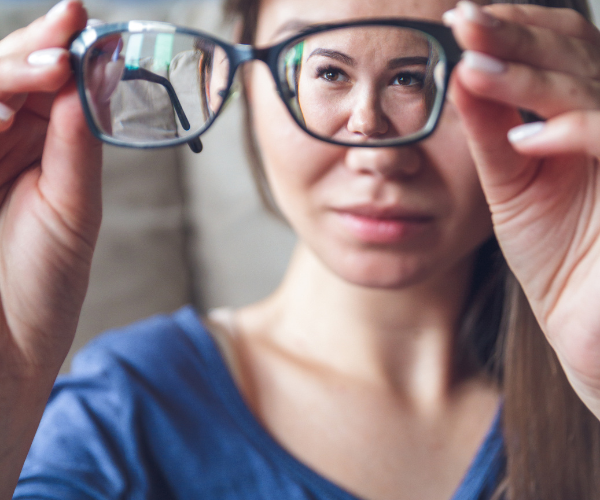- According to the World Health Organization, approximately 2.2 billion people worldwide suffer from vision impairment or blindness. Glasses are one of the most common ways to correct vision problems.
- Glasses have been around for a long time. The first known use of corrective lenses dates back to the 13th century when Italian monks used lenses made from beryl to help them read.
- Some people believe that wearing glasses can make you look smarter. In a study published in the Journal of Personality and Social Psychology, researchers found that people perceived those who wore glasses as more intelligent than those who didn’t.
- Wearing glasses can also be a fashion statement. Many people choose frames that complement their personal style, and some even have multiple pairs to match different outfits.
- Glasses can protect your eyes from the sun’s harmful UV rays. Many eyeglass lenses now come with a UV coating to block out these rays and prevent damage to your eyes.
- Some people use glasses as a way to hide their emotions. When someone is wearing glasses, it can be more difficult to read their facial expressions, which can be helpful if you’re trying to hide how you’re feeling.
- Wearing glasses can also affect the way you see color. Some glasses can enhance colors, while others can make them appear duller.
- It’s important to keep your glasses clean to ensure that you’re seeing clearly. Dirt, fingerprints, and smudges can all affect the clarity of your lenses.
- Wearing glasses can also affect your depth perception. If you’re used to seeing the world in a certain way without glasses, it can take some time to adjust to the new way of seeing things.
- Glasses can be a symbol of intellectualism or nerdiness in popular culture. Characters like Harry Potter, Clark Kent, and Velma from Scooby-Doo are all known for their distinctive glasses.
Vision loss?
Long-term vision loss is a debilitating condition that can greatly impact one’s quality of life. Over time, our eyes undergo a natural process of aging, which can lead to various vision problems such as cataracts, macular degeneration, glaucoma, and other age-related eye diseases. These conditions can cause significant changes in our visual acuity and lead to permanent vision loss if left untreated.
Visiting an eye doctor for regular eye exams is crucial in detecting and managing vision problems before they progress to the point of causing permanent vision loss. At Peermed Optom, our optometrists are equipped with the latest technology and expertise to diagnose and treat a range of vision problems, including age-related eye diseases.
During an eye exam, our optometrists will perform a thorough eye exam to assess your vision, eye health, and the presence of any vision problems. They will also review your medical history and perform tests such as measuring your visual acuity, checking for cataracts and glaucoma, and examining the retina for signs of macular degeneration.
If a vision problem is detected, our optometrists will work with you to develop a customized treatment plan that best meets your needs. They may recommend lifestyle changes, medications, or even surgery to help manage the condition and prevent further vision loss.
At Peermed Optom, we understand the importance of preserving your vision and quality of life, and we are committed to providing you with the highest quality eye care services. Whether you are experiencing symptoms of vision loss or simply due for a routine eye exam, we encourage you to visit us at Peermed Optom.
In conclusion, if you are concerned about your vision or are experiencing any symptoms of vision loss, it is crucial to schedule an eye exam with one of our optometrists at Peermed Optom. Our team of eye care professionals is dedicated to providing you with the care and attention you need to maintain good eye health and prevent long-term vision loss.


